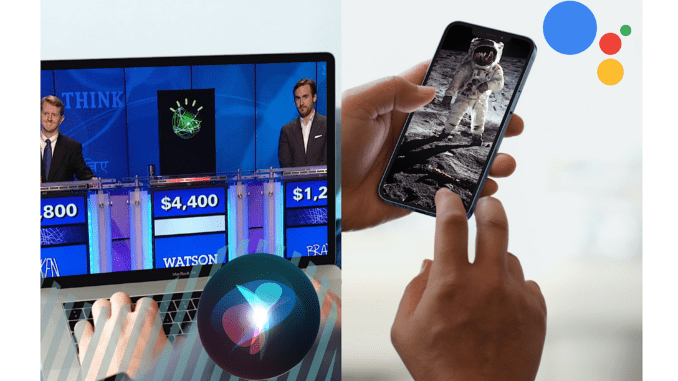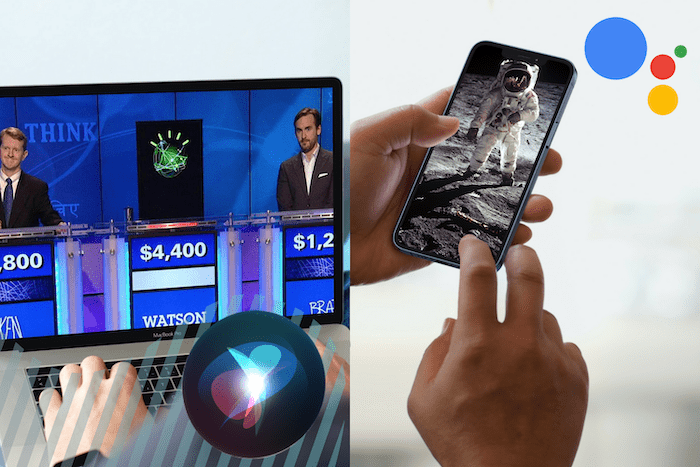
By Hugo Seymour, Chief Operating Officer at Della
Humanity worked out how to store information using writing approximately three thousand years ago. Exactly what to do with it next has been a matter of debate ever since.
Physical ledgers, spreadsheets and hard-coded systems are now being augmented using AI and other sophisticated techniques to bridge the gap between what we know now and what we suspect is in our data… somewhere.
The current trend in AI to solve this problem is to allow people to simply ask questions in their own words. Alexa, Siri and even Cortana (anyone remember Microsoft’s attempt to enter the space?) can now answer questions as you ask them.
Della has developed its own question answering technology to help lawyers review their contracts faster. Using a question answering approach has dramatically changed the concept of AI-based contract analysis, making the tool extremely easy to use and interact with according to clients.
Now that this AI technology has arrived in the legal sphere, it is worth exploring its origins and where it might go next.
How is Neil Armstrong relevant?
Some of the earliest applications of this technology exploited closed domains. These were really databases where only specific information existed and there were a limited number of sensible questions.
In the 70s, there were systems that could answer questions about the chemical composition of moon rocks from the Apollo missions, like ‘did any of the samples contain more than 13% aluminium?’. The system would break down the query using a set of rules and then check the database to see if those conditions were met. Any question had to be answered from the database and it was unlikely to work with queries that had not been anticipated and unable to help unless you were interested in moon rock chemistry. So, asking about the existence of aliens wouldn’t fall into the category of a ‘sensible question’.
This approach relied on having experts produce a database on a single subject which could then be queried. In real life, most information does not restrict itself to one domain and the expense and difficulty of collating disparate information into a single database is an issue that anyone paying for, or providing, due diligence services will be overly familiar.
What is Jeopardy?
The technology continued to develop despite the AI winter[1]. But returned in force in the early 2010s when IBM’s Watson made history after winning the American quiz show ‘Jeopardy’ against two of the strongest human contestants to have participated[2]. It used a series of custom algorithms that decomposed the questions into different possible candidates.
Watson searched through a series of carefully curated knowledge bases and then recompiled a series of candidate answers before coming up with a top answer and a confidence in that top answer. Despite this huge leap in AI development, Watson was still confused by short or unusual questions from the host and would be confused by the internet in general.

The only way to evolve is to move the goalposts
The way people interact with technology is changing. We are moving from keyboards and mice to inbuilt sensors and voice control of everyday systems. Correspondingly, research has moved from being able to find information in structured environments like databases to unstructured information like text.
The technology needed to do this has evolved as well. Moving from developers’ SQL queries[3] to people being able to ask random questions to their digital assistants and get sensible answers. Google has had a headline goal of organising the world’s information, it wants to present it in a form that people can deal with whilst wandering around their kitchens.
Where are we now?
The language model revolution changed a lot for question answering[4]. Instead of trying to engineer an algorithm for every likely class of question it allowed AI to use the grammar and semantics of the query, combined with the power of the language model to better cope with text. This means that you can now ask types of questions that the system has not seen before and expect a decent result.
Progress in this area is accelerating thanks to the tech giants’ interest in changing digital assistants from a novelty to an essential. Problems like domain adaptation[5] are being addressed and we are moving from extractive summarisation, where the answer to a question is just a selection of text from a document it can see, to abstractive summarisation, where the model is composing an entirely new response based on the information it has seen. Abstractive summarisation is particularly exciting as it can potentially allow for an AI to bear more than one document in mind at a time when composing an answer.
How does this apply to law?
The fundamental question has not changed since the first paragraph. What are we going to do with the information that we have gathered? The technologies we have discussed have changed the response. Question answering allows us to get answers out of long unstructured documents efficiently and at scale. Abstractive responses might be especially useful here as summaries and brief presentations of more sophisticated documents are a frequent feature of a lawyer’s working day.
Question answering is only going to get better, understanding what is in a contract stack is going to get easier regardless of the contract format, type or even language. Lawyers and business users are going to be able to address more questions faster than they ever could before. The big change here is that a full view of a firm’s contractual landscape is going to be available by default as opposed to just before a firm is sold.
Della’s unique technology
Della uses question answering technology coupled with user created checklists to augment contract review. The checklist approach ensures that users apply a consistent and systematic review to all their documents and the AI works hard in the background by speeding up the whole process.
Today Della is used by large and small law firms and legal departments throughout Europe and the US. This unique question answering technology has seen success in terms of ease of adoption as well as being extremely adaptable to specific industries, jurisdictions and languages.
If you would like to see how Della’s question answering technology works and test it for yourself on your own contracts, you can request a demo today.

[ Artificial Lawyer is proud to bring you this sponsored thought leadership article by Della. ]
—
Footnotes:
- [1] An AI winter is a period of reduced funding and interest in the field. It coincided with funding cuts, in this case the DARPA funding cuts in the US (1973-1974) and the Lighthill report in the UK (1973).
- [2] The Watson project was the follow-up to IBM’s victory over reigning world champion Gary Kasparov in chess in 1997.
- [3] Structured Query Language – A family of languages for accessing databases, likely responsible for a lot of what you see on this page.
- [4] A language model is a mathematical representation of an entire language (or even multiple languages) – see our earlier blog on the subject here.
- [5] Different domains have the same words but different languages, showing someone’s demise in normal English is upsetting, in the real estate world it’s a property.